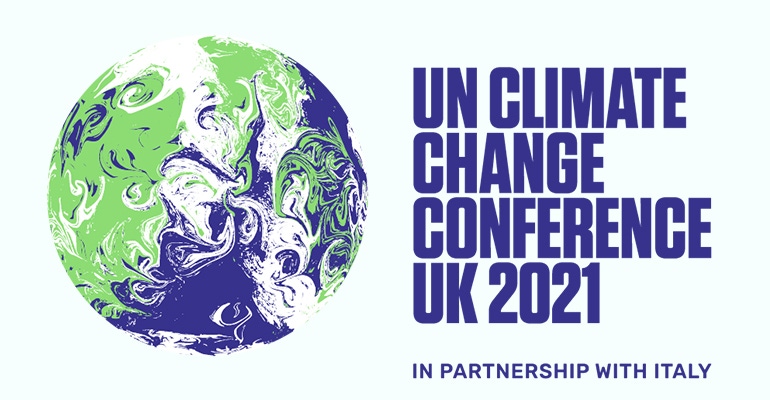Climate change goals: A look around the world
Climate change, greenhouse gas emissions, global warming—no matter what you call it, we have a short time to mitigate the damage and reduce the risks to the planet and ourselves.

In about two months—Oct. 31, to be exact—world leaders will gather in Glascow, Scotland, for the United Nations Climate Change Conference UK 2021, also known as the 26th Climate Change Conference of the Parties.
These world leaders are tasked with committing their countries to actions that will reduce carbon emissions by half by 2030. The year two thousand thirty. Essentially, eight years from now. A child born as you read this likely will be entering third grade in 2030. No matter how you look at it, it's very little time at all.
Since you are reading this page, you probably are pretty familiar with climate change and what the U.S. needs to do to mitigate its share of greenhouse gas emissions. But keeping up with all the climate change activity—or lack thereof—consumes a lot of time. So, we took a look at what some countries are doing as COP 26 approaches.
The United Kingdom is hosting COP26, but is the government taking it seriously?
World leaders often use unusual or interesting language when they speak to the public. At the Climate Action Summit 2020 in December, British Prime Minister Boris Johnson said, "We're doing this. We're doing this. Not because we're hairshirt-wearing, tree-hugging, mung bean-munching eco freaks—although I've got nothing against any of those categories; mung beans are probably delicious—we're doing it because we know that scientific advances will allow us, collectively, as humanity, to save our planet and create millions of high-skilled jobs."
Earlier this month, Johnson said the British government is taking climate change and the upcoming conference pretty seriously, noting that countries have to move to net zero carbon emissions.
"We want to see an end to coal by 2030… we want to see the planting of millions and millions of trees around the world" he added, according to the BBC's Jessica Parker. Parker also pointed out that a coal mine is being planned for Cubria County in northwest England and an oil field might be developed near Cambo, Scotland, which is west of Shetland.
Johnson has been criticized for not opposing these developments or creating a renewable energy industry in the United Kingdom.
Australia falls behind other developed nations
Australia has yet to set a net-zero emission target, even though it is the world's third largest greenhouse gasses emitter on a per-capita basis, Bloomberg reports.
Major economies are "absolutely critical" to cutting global emissions "and I urge Australia to step up with big, bold commitments ahead of COP26 in November," Alok Sharma, a U.K. lawmaker and president of the upcoming summit, recently said.
While the United States has committed to reducing greenhouse gases 50% by 2030, and Canada has made a pledge of cutting emissions 40% to 45%, Australia's goal is to reduce emissions 28% in the next eight years.
Jonathan Pershing, the U.S. Deputy Special Envoy for Climate Change, said, "I would submit Australia could be much more aggressive. It would be really helpful to see Australia step forward with a more ambitious effort."
What about the Middle East?
Leaders of the United Arab Emirates want to have a net-zero emissions target set before COP26 begins, but they don't expect to make announcement before then, Qais Al Suwaidi, head of the Ministry of Climate Change and Environment told Bloomberg.
Al Suwaidi noted that many countries are announcing targets without providing evidence those targets can be met. In December, the UAE committed to cutting greenhouse gas emissions 25% in the next 10 years. It's on track to meet that goal, he said.
"There is a lot of talk: 'We can achieve net zero, we're going to do this, we're going to do that'," Al Suwaidi. "But then in practice we see contrary action. We like to do things differently."
The Middle East and North Africa region faces several unusual challenges in cutting carbon emission due to it geopolitical and socioeconomic systems, The New Arab reports.
"Climate change is already affecting the Middle East in alarming ways. In recent years, several Arab states have experienced an intensified water cycle, causing higher frequency and intensity of floods and droughts, and extreme weather events such as heatwaves, cyclones, and dust storms," according to the publication. In 2017, the United Nation's Arab Climate Change Assessment Report found that more than half of the region's croplands face critical water shortages. Droughts and desertification could lead to less water, food and livestock there.
About the Author(s)
You May Also Like




